|
Gamification, as described by Merriam Webster, is the process of adding games or game like elements to something (such as a task) so as to encourage participation. You might have come across the term Serious Games as well. These are concepts ideally suited for positive reinforcement and "just-in-time" online training. Gaming and children/adolescents have always had a close relationship going back generations, and this has catapulted to a new level over the course of the pandemic where games were one of the only media left for social interaction! The use of gamification has expanded significantly over the past few years, with successful outcomes from applications like Pokemon Go, Geocatching, and corporate Fitbit challenges. Gamification is a rapidly growing field in various industries, including healthcare. According to a report by MarketsandMarkets, the gamification industry is projected to reach $30.7 billion by 2025, growing at a CAGR of 30.31% from 2020 to 2025. The healthcare industry, in particular, is expected to have a significant share in this growth, with a CAGR of 43.8% from 2020 to 2025.  In the healthcare industry, gamification has emerged as a helpful tool for motivating patients to stick to their therapies. With the rise of digital health-powered healthcare in the future, gamification is expected to play a crucial role in helping patients stay committed to their treatments without burdening efforts. Research studies have shown that gamification and serious game solutions can create an interface between industrial challenges and academic innovations, leading to better healthcare outcomes. In fact, a study published in the Journal of Medical Internet Research found that gamification interventions in healthcare can improve patient engagement, knowledge, and behavior[1] .
It’s important for these game based solutions to be able to integrate into the technology that is already part of our everyday lives. For example: The Didget blood glucose meter, connects to a Nintendo DS gaming platform and rewards children for consistent blood glucose testing. Additionally, companies like EveryMove use social motivation to encourage users to be more active by allowing friends to compare progress Academic research has also explored gamification and serious games in the field of health, such as games for the cognitive assessment of older adults, AR gamified solutions for human skills training, a new concept of simulation in health gamification, and the creation of a board game in intensive care and emergency medicine. Despite two decades of work, the game-based learning community still faces challenges that need to be addressed, such as re-examining fundamental concepts and principles to improve the effectiveness of gamification in healthcare. Games for the Cognitive Assessment of Older Adults; Fernanda Oliveira from the University of Technology Sydney AR Gamified Solution for Human Skills Training arodes.hes-so.ch/record/9681by Yassin Rekik from HEPIA. Gamification is a growing field with great potential in healthcare. As digital health continues to expand, gamification could be the motivator that motivated patients & caregivers need to stick to their treatment plans without the extra burden of a check box. With more research and innovative solutions, gamification could be a significant factor in improving patient outcomes in healthcare. A fitting perspective by Björn Berg Marklund, Senior Lecturer at University of Skövde, Sweden “The game-based learning community still displays a strange mixture of amnesia and myopia, where we focus on staying up-to-date with new technological innovations and moving onwards, without clearly having re-examined the fundamental concepts and principles we are basing our work on.” While gamification can provide significant benefits in healthcare, there are challenges in game design that need to be addressed. A gamified device or app needs to be engaging, but not to the point of being toxically addictive. It also needs to strike a balance between being fun and informative while creating achievable challenges that still require effort. References:
MarketsandMarkets report: "Gamification Market by Component, Deployment, Organization Size, Application (Marketing, Sales, Product Development, Human Resource, and Customer Engagement), End-User (Enterprise and Consumer), and Region - Global Forecast to 2025" - https://www.marketsandmarkets.com/Market-Reports/gamification-market-991.html Healthcare IT News article: "Gamification in healthcare expected to boom in next five years" - https://www.healthcareitnews.com/news/gamification-healthcare-expected-boom-next-five-years MobiHealthNews article: "Report: Gamification market to reach $30B by 2025, healthcare a top growth sector" - https://www.mobihealthnews.com/news/report-gamification-market-reach-30b-2025-healthcare-top-growth-sector MedCity News article: "Gamification market to grow to $30B by 2025, healthcare to see most growth" https://medcitynews.com/2021/03/gamification-market-to-grow-to-30b-by-2025-healthcare-to-see-most-growth/
0 Comments
The average premium for family care in the US has increased 22% over past 5 years and 54% over past 10 years - significantly more than workers’ wages OR inflation. I recently had the opportunity to discuss this with peers and students at NYU STERN’s Annual conference by the HealthCare Association. We discussed challenges in the era of patient centric care and innovation, both of which are rapidly evolving while the system overall hasn’t necessary kept up. I hope the Q&As below help challenge your thoughts and act as a guide for career development and skills to prepare for, in the coming future. Q: What are the challenges to a patient centric approach? For context, the (Institute of Medicine) defines patient-centered care as: “Providing care that is respectful of, and responsive to, individual patient preferences, needs and values, and ensuring that patient values guide all clinical decisions”. A: Patients treated in patient-centric hospitals are also less likely to require readmission in the month after they go home. However, from a business perspective, transition to patient-centric care can create financial strains on the system. Patient-centric care may result in the use of resources not currently reimbursed while reimbursement policies will need to adjust. While wearables, monitoring devices and patient satisfactions surveys prompt patients to take control of their treatment, to some extent this could erode professional obligations to provide effective care. There is a balance. Apple just merged over 400+ provider records for veterans using lab and EHR records from vendors who use iOS systems for helping over 20 million veterans manage all their health data in one place. Will this lead to better health management and outcomes? Bear in mind that to fully conceptualize this, Veterans have to be on an iOS system to leverage the service. The results will be a good one to watch. https://www.idigitalhealth.com/news/veterans-now-have-access-to-health-records-on-apple-iphone Q: What is the role of provider incentives vs. guidelines for handling conflicts between what a patient wants and their best interests? A: Physicians generally work to keep patients satisfied as they hope for return business. 3 main categories of healthcare transactions influence with provider-care –. Q How does one measure or think about satisfaction in a patient-centric setting? “Physician Satisfaction Surveys” in particular. A: Evidence based medicine (EBM) was always meant to be patient-centric, integrating clinical experience and patient values with the best available research information. Leaning more toward patient values has intangible benefits on staff productivity and morale. However, these patient satisfaction surveys add to the demands of EHR record-keeping which sadly has turned into an administrative burden. Perhaps more outcomes-research on the scoring system and the benefit of the surveys is required. Plus, it is worth considering trends in data analytics. I am not simplifying this by any means, but when Google takes charge and funnels the right music to a Spotify account there is a certain intangible time-value benefit. Q: Is it worth spending on DTC ads for pharmaceutical products for consumer education/awareness? A: Depends on the product, but with increased data available on specific patient-types and more targeted communication channels to reach these audiences, I personally do not think that broad strokes DTC gives the manufacturer or the consumer the best value for awareness being generated. Besides, you want patients to be more educated on certain conditions not simply aware. Q: What is a major change needed for health care markets? How do patient-centric models fit in? A: If the end goal is to provide high-quality and cost-effective care, there needs to be a balance between guidelines and incentives. This is largely in the hands of health policy makers. For this, health policy makers will need to deepen their understanding of innovation and solutions being presented. It would be good to start funding research into patient satisfaction and clinical outcomes. Physician education is another area that could evolve. The ‘art’ of medicine is now merged with real world outcomes and a full understanding of managed care guidelines and policy making. Q: Is it costly or cost-saving to make the healthcare experience more patient-centric? A: It is certainly costly in the short term for longer term sustained benefits. Plus, our understanding of costly medicine isn’t necessarily complete.
Patient-self monitoring software and educational efforts will likely result in better clinical outcomes, but these need to be addressed by policy and reimbursement for impactful adoption. Q:What types of emerging digital roles do we consider: A: Broadly there are 3-4 categories in the Biotechnology and Pharmaceutical fields emerging with increased Artificial Intelligence (AI) and Machine Learning (ML), manly driving insights to help make decisions: R&D: Utilizing AI to identify viable targets and genes along genetic pathways that could show promising results in disease areas Clinical:
Commercial: Identifying Physicians who are likely to seek information on the target patient for a specific product. Executive: Leveraging AI to showcase competitive and market strategy to the C suite:
What are the different career-options in Data? A worthy read : http://alex-antonison.com/2019/10/04/what-are-the-different-roles-in-data/ The Different Roles : In closing, the whole purpose of Health insurance was to prevent bankruptcy due to high-cost. However, healthcare has become so politically charged that people aren't trying to solve problems rather than identifying problems. https://www.healthaffairs.org/doi/pdf/10.1377/hlthaff.10.4.138 I encourage all aspiring HealthCare students, early career professionals as well as those taking control of career growth opportunities to consider a range of career skills as population health, health policy and digital strategy that are going to shape healthcare in the coming years. This is also good because at the core it encourages entrepreneurship – whenever large corporations are challenged with a problem, there is an opportunity for an entrepreneurial venture. In the coming issues of my newsletter below, I will introduce experts in digital strategy who have had successfully made careers in consulting or entrepreneurship. I believe in identifying challenges and figuring out a solve; trying not to focus as much on my thoughts but on creating actionable takeaways for the audience instead.
Happy to see the new Healthcare specialization at Stern as of this year. https://www.stern.nyu.edu/programs-admissions/part-time-mba-nyc/academics/specializations/healthcare One of the most important decisions in life, next to picking your life partner, a house etc., is perhaps picking your next educational institution/college or the next landing spot in your career. Considering that this step can make, break and/or steer your life trajectory, decisions made for the right reasons here cannot be underscored enough. This article is the result of a mixture of personal experiences, observations and conversations with colleagues and students. The focus here is to tap into life's successes, failures and lessons learnt to help steer your decisions before making the plunge into a college degree – Gradate, undergraduate, executive or part time. Before I even dive into this, I will add that not making the plunge is not a wrong decision either!
Fast forward from then, I have now spent two decades in the Pharmaceutical industry in several global strategy roles while building a family and gaining a ton of work experience. I remember placing that 90th percentile GMAT score on my resume for a while until a few years earlier when I realized how obsolete that was. Several years later I got involved in mentoring and career counseling for the Biotech and Pharmaceutical industries. Given my journey in this space, it felt fair to share experiences and teach when requested. I should highlight that through my experiences I have observed that students, even those from some of the Top MBA schools, struggle with placements in specific industries because their school and their education wasn’t designed for the industry of choice in the first place. Some of the top finance and tech schools with a great global reputation did not necessarily offer the best placements and student experience in specific fields. This became apparent when I had to tweak the approach and content of my case studies at top schools vs. perhaps schools that were not ranked overall Top in Graduate programs i.e. students from some of the smaller schools actually had more knowledge in certain fields. Several NJ based schools for example, focus on engaging neighboring Pharmaceutical working professionals into their programs to talk, speak and interact with students. Professors and program directors from the Pharmaceutical industry fuel their placements. I will however highlight that after interacting with students and career executives from several schools, I observed that those from big schools had a certain distinction in unteachable skills such as professional maturity and resilience. Plus the benefit of joining a student body that will mostly have really successful career trajectories - "If" you choose to stay in touch and keep the networks alive. Case study workshops and career advisory sessions at Rutgers Business School for graduates and early career professionals Guest lecturing at a Global Business Strategy class for MBA students at NYU. The growing focus on careers within Precision based medicine and Data Analytics within various backgrounds outside of pure science has been a trend that I continue to train and prepare professionals on - where to look, how to network and how to prepare In summary, if you have your eye set on a certain career and you get into a big school that is not high on the list for your industry of choice, it will be an uphill battle. Slightly "uphill". You will however benefit from a peer group that will most likely make it big across several industries plus the benefit of getting roomed in some of these softer skills that arguably can make or break careers (If you want to climb the corporate ladder – again no wrong or right decision here). On the other hand, in the event that you already have a strong network and just need a foot in the door, you might want to consider a school that is highly ranked in your area of expertise. Not too long ago my niece made a choice of school that might not have been the bigger name vs. some of the others she got accepted into. After gauging her own strengths and areas where she needed the right push to accomplish her goals, she chose faculty, alumni and curriculum over the brand name. She wanted to train in analytics and computer sciences. A year into the program, she had an internship at Goldman Sacs. Bear in mind that this was someone who was already very entrepreneurial and had established her own non-profit organization before getting into college – one of her strengths that got factored in. Students and working professionals are always surprised when we show the set of schools that are great in their areas of interest vs. overall ranking. This prompted some research and here are some examples –
This is about life decisions around education and career choices. About having to pick a livelihood and somewhat live with it…  “ I could take this job that would pay me a lot more than I am making now”, Amy, one of my friends at work said with excitement while we grabbed lunch after a workout at the office gym “This job would totally set me along the career path I wanted in management, direct reports and everything! But my current job has the best hours and I actually have a life outside of work”. Amy (whose name shall remain an alias for privacy), was always looking for something more in her current role. However, when the perfect opportunity presented itself, she found herself at cross-roads. I had a similar conversation with Michelle, a student seeking career advice. Michelle was looking to pursue a higher degree in Psychology but could not decide between getting a job/ making money and gaining work experience vs. not taking up a job and spending money on graduate school instead. She ultimately made the decision to accept graduate school which was mainly driven by the fact that she got into the school of her choice. Michelle decided to trade the time value of money with a higher education primarily because of the quality of the institution for her degree of choice. This in turn opened-up the possibility of breaking-even later on, via getting a fulltime job that would pay well. Michelle’s decision could have changed had she not wanted to pursue Psychology and perhaps if she had not got into an institution that would have set her up for success in her line of work. Amy, my friend from work, eventually stayed in her job, which was not her dream job but she realized that what she wanted was not another corporate role but rather a side-hustle. She went through HR and all the Legal channels and started a fitness consulting business. Making tough decisions is half the battle. The real battle to overcome, is to be at peace with the consequences of your choices. Amy and Michelle came to a point where they put a high capital on being ready for change.  Albert Einstein is broadly credited with exclaiming “The definition of insanity is doing the same thing over and over again, but expecting different results” At a reunion at my alma mater, while chatting with the incoming Health association president, we talked about bringing in a career workshop. I figured I could use my off-the-shelf product. Was I wrong. What I had been using for smaller, more Healthcare focused schools, didn’t work for this ivy league school - they wanted a basic workshop!  My 2 cents for picking your educational institution: big names vs the little ones - A larger brand name is useless if it does not train you well in the career of your choice No knock on large brand institutions, but you might want to think hard before picking a big name in Law and Banking if your focus is on Science or Public Health instead. I also have my opinion around a big university degree for your undergrad vs. saving that for grad school. This, I shall save for another column us https://www.usnews.com/education/best-colleges/ivy-league-schools
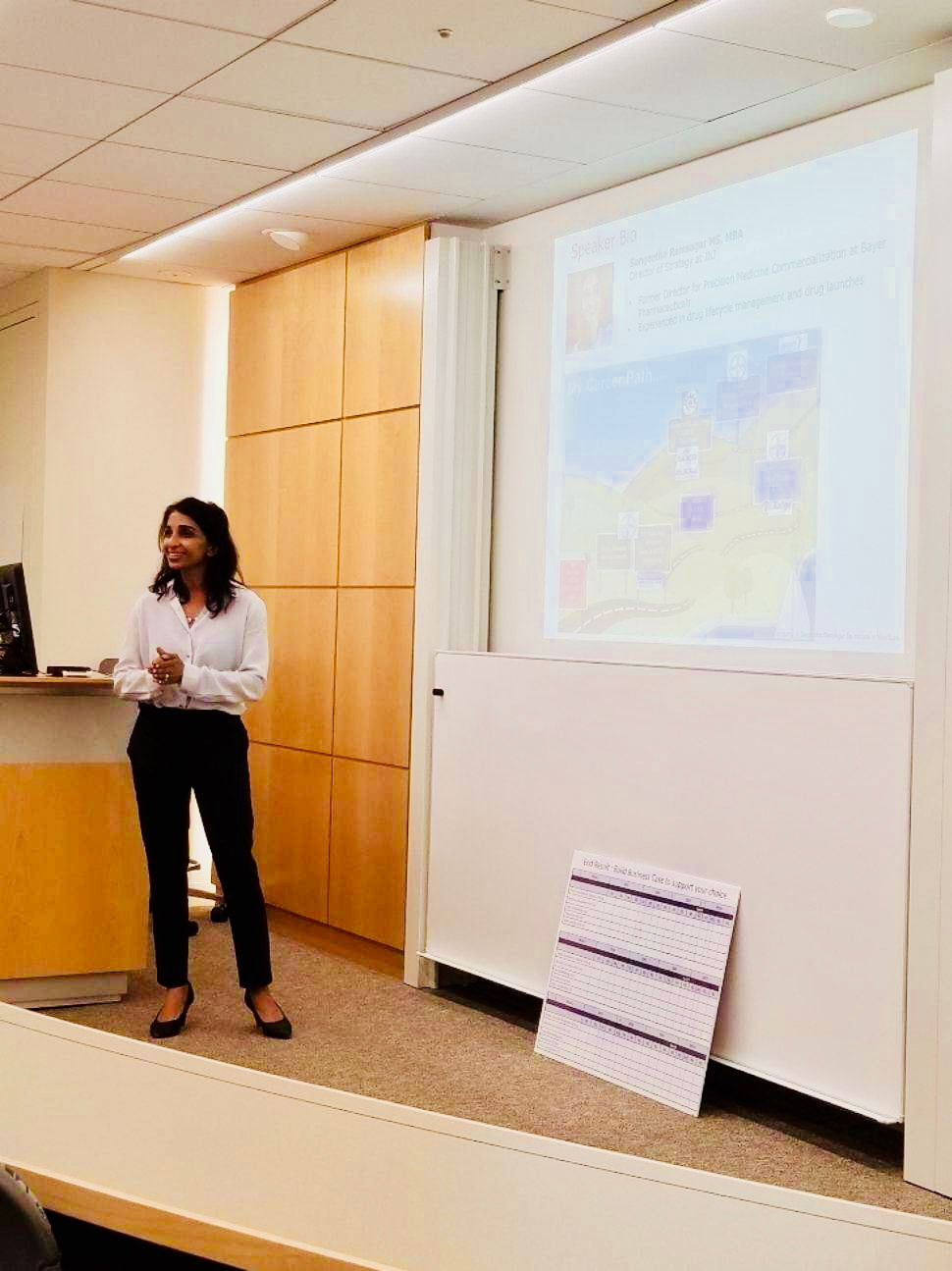 It was a rewarding experience interacting with future bright minds, leaders and MBAs from STERN, setting themselves up for successful careers in healthcare. What was great to observe was the desire to explore entry-career options that were non traditional, What this means is, the willingness to look toward paths less taken and careers that are emerging but not necessarily top of the line today but most likely highly coveted tomorrow! I was not surprised by the risk-reward nature of the questions. To help navigate this, I created a beginners sheet (attached below), with a flavor for what you might want to consider as a basic footprint in decision-making. Consider it a stock-picking formula of sorts;). Start with your core skill-sets including softer skills such as people-management or relationship development, willingness to travel and explore the world. Alternately, perhaps stability is more important to you right now. Marry this with future careers these options might lead you to, such as setting you up to be a CEO of an organization or perhaps prepping you to some day become an entrepreneur. Remember, each of these options are not mutually exclusive nor collectively exhaustive (thank you to my former consulting partners). Now what does that mean? It means you can still get the monetary satisfaction, if that matters to you, and do a less politically powerhouse role while still making tremendous networks and setting yourself for future success. Some of the coveted high profile roles at times do not expose you to external networks as much as certain other roles. While you might develop a great track record within the company, the job might compromise your external connections broad subject matter knowledge for diversifying your career options. I am not by any means knocking over the traditional leadership roles. I am simply exposing you to think through the craft of career-design creatively. At the most, you want to take career steps that diversify your future options rather than narrow it down. The future in healthcare is rapidly evolving and there are more coveted roles to spare and few takers in the near term! Want to chat more? think about what elective your should take etc? Find out about my next workshop or drop me a note... Looking forward to the speaking engagement at my alma mater tomorrow on a topic I am very passionate about emerging careers and career guidance in the pharmaceutical and biotechnology space. Having experienced the ever-too-familiar scenario of getting stuck in a functional role or not moving to the right-fitting role due to lack of exposure, I am always driven to provide guidance around evolving new career tracks in the Pharmaceutical & Biotechnology space. Bioinformatics, strategy & operations, market access, medical sciences, data sciences, precision medicine and many other emerging careers have begun to play a critical role in the pharmaceutical industry.
The healthcare industry is rapidly evolving and is diversified in our modern times. Influenced and shaped by changing policies and new innovations, ‘keeping up’ has become critical for awareness around career options. It has become a critical career-development strategy to understand new and emerging career paths that seek diverse backgrounds. I look forward to helping those interested in experiencing various new areas and functional roles while working on real world examples and interacting 1:1 with people in the field. There is never enough to be said around raising awareness around emerging biotech and pharmaceutical careers and the asking skill-sets to achieve success in these areas. |
Subscribe to Find Out More!Archives
April 2023
Categories |
The views ON THIS WEBSITE are my own based on my experiences and do not reflect those of my current or previous employers




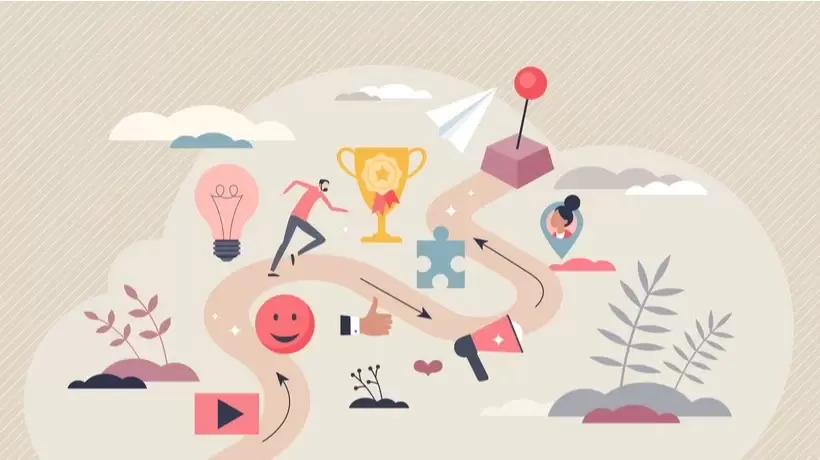


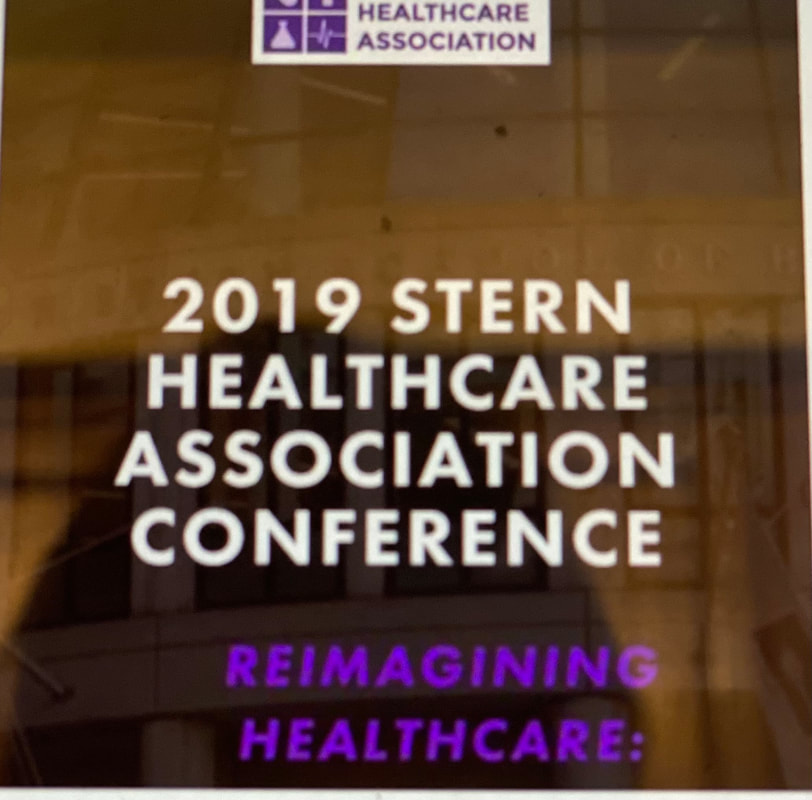
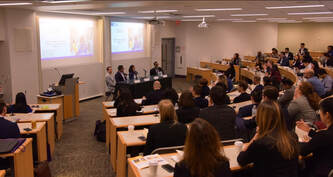
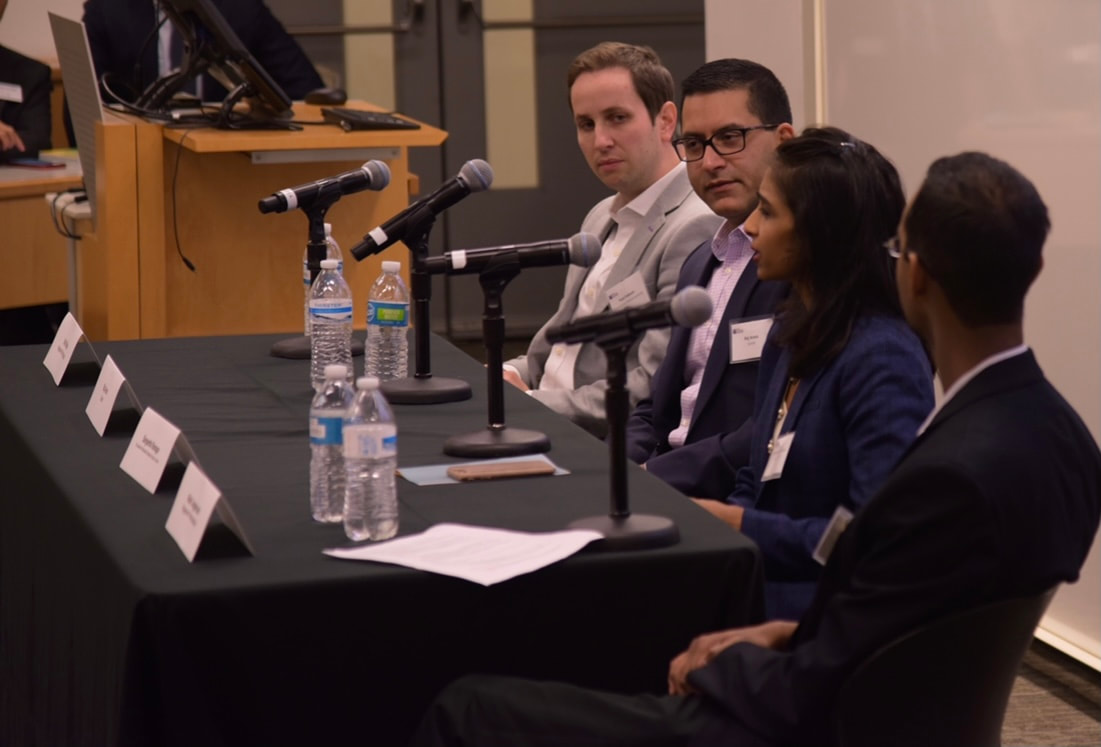

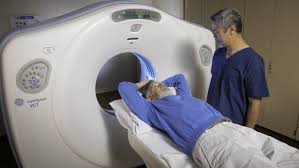
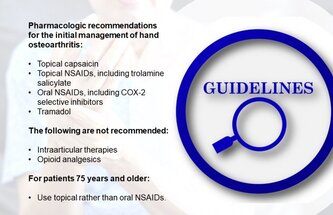

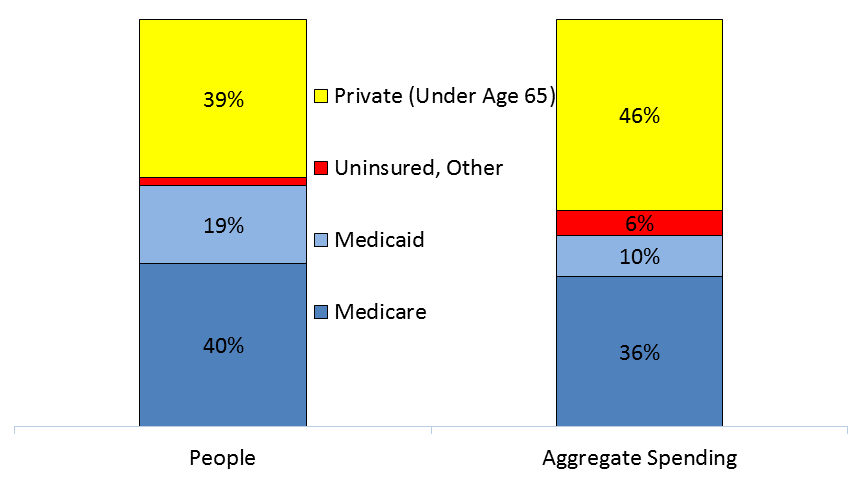
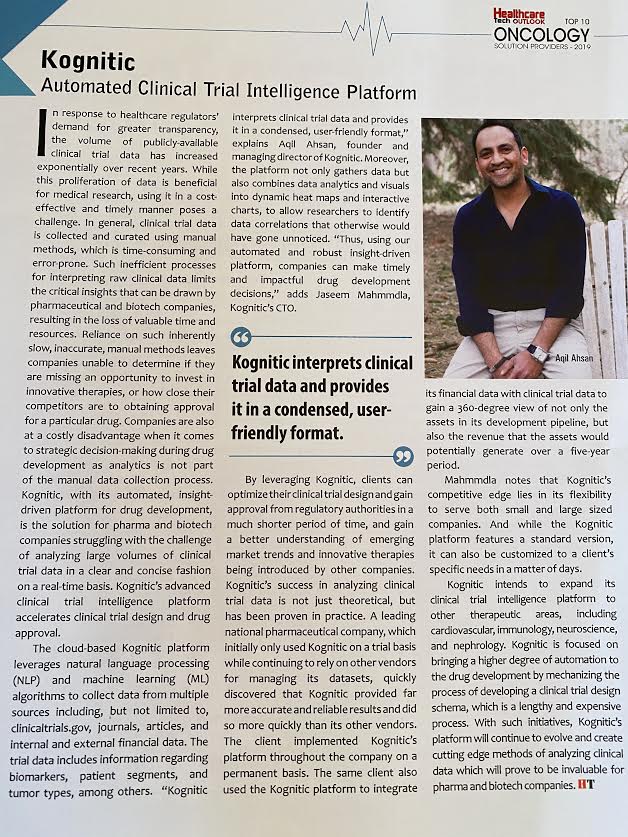





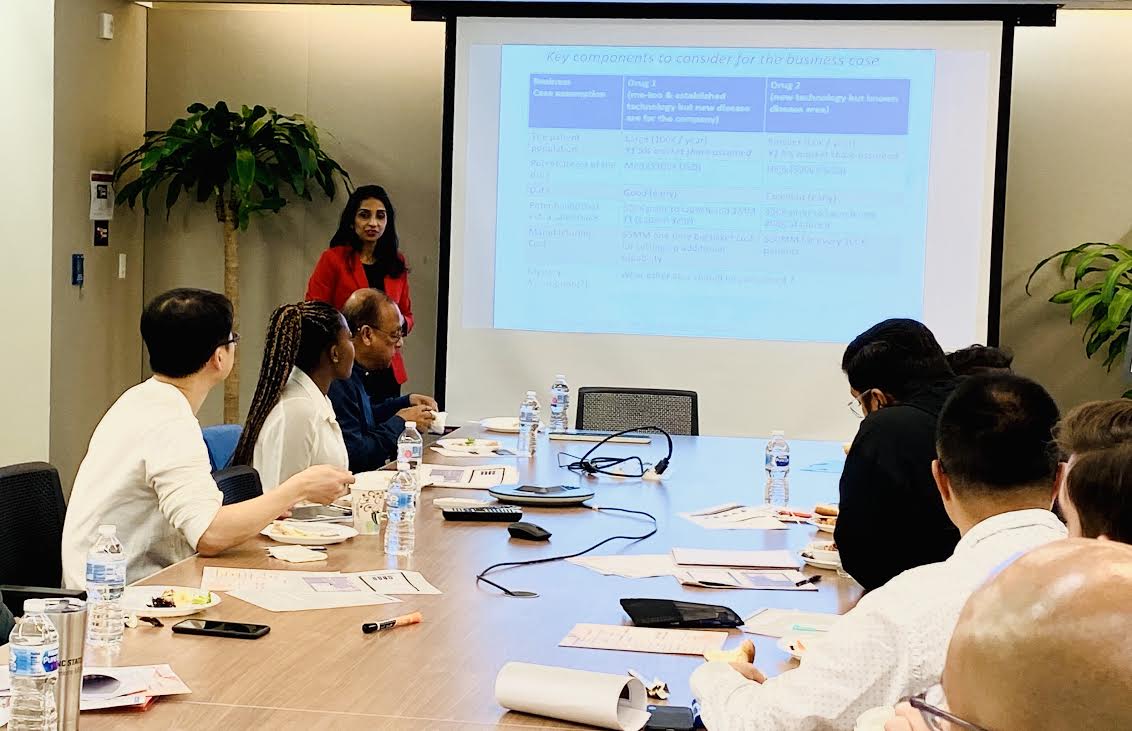
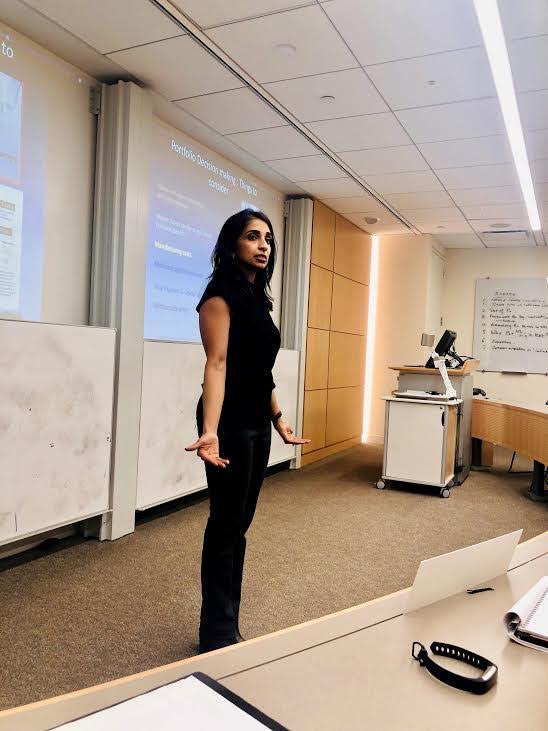


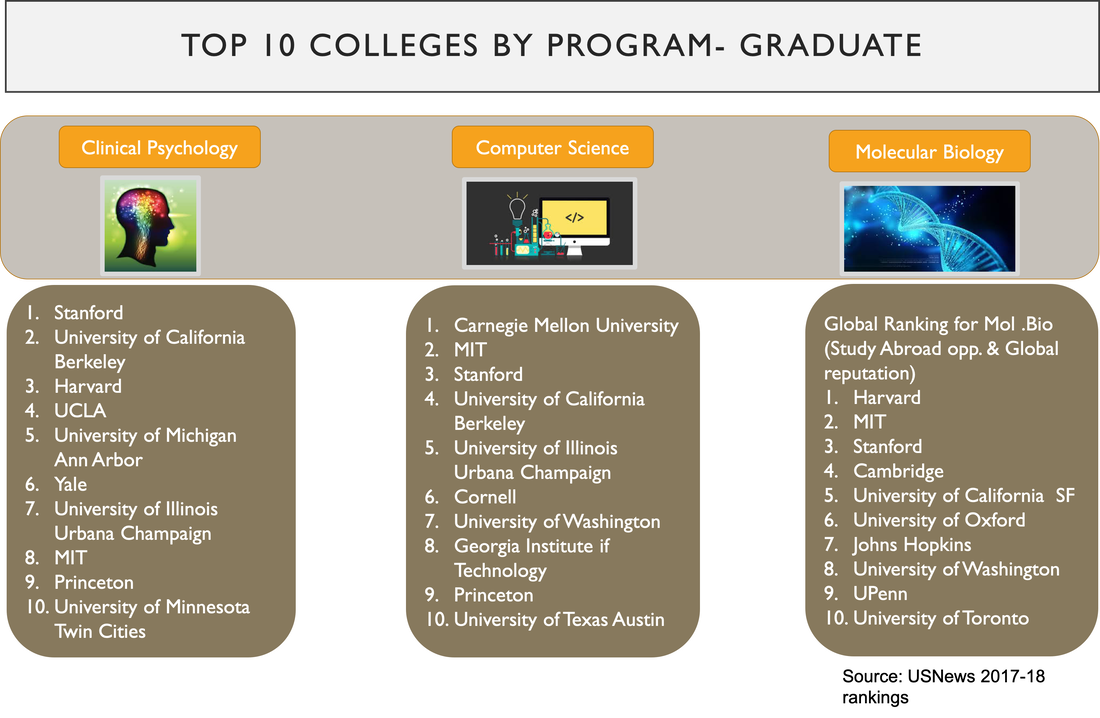
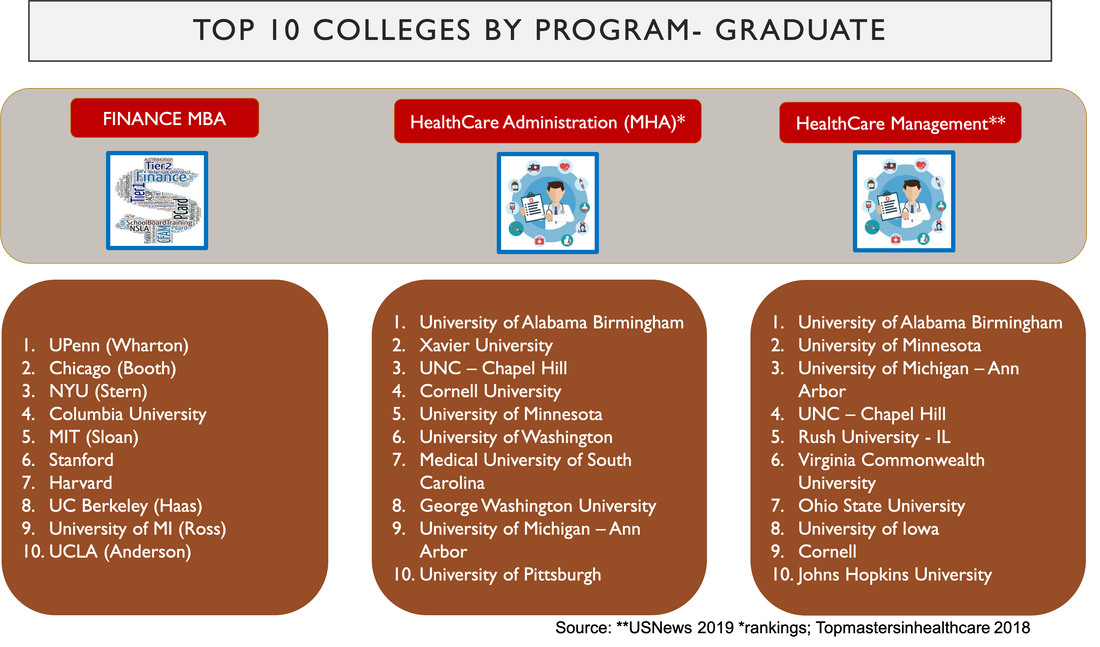
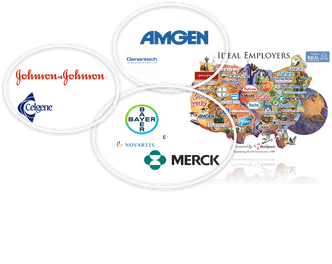


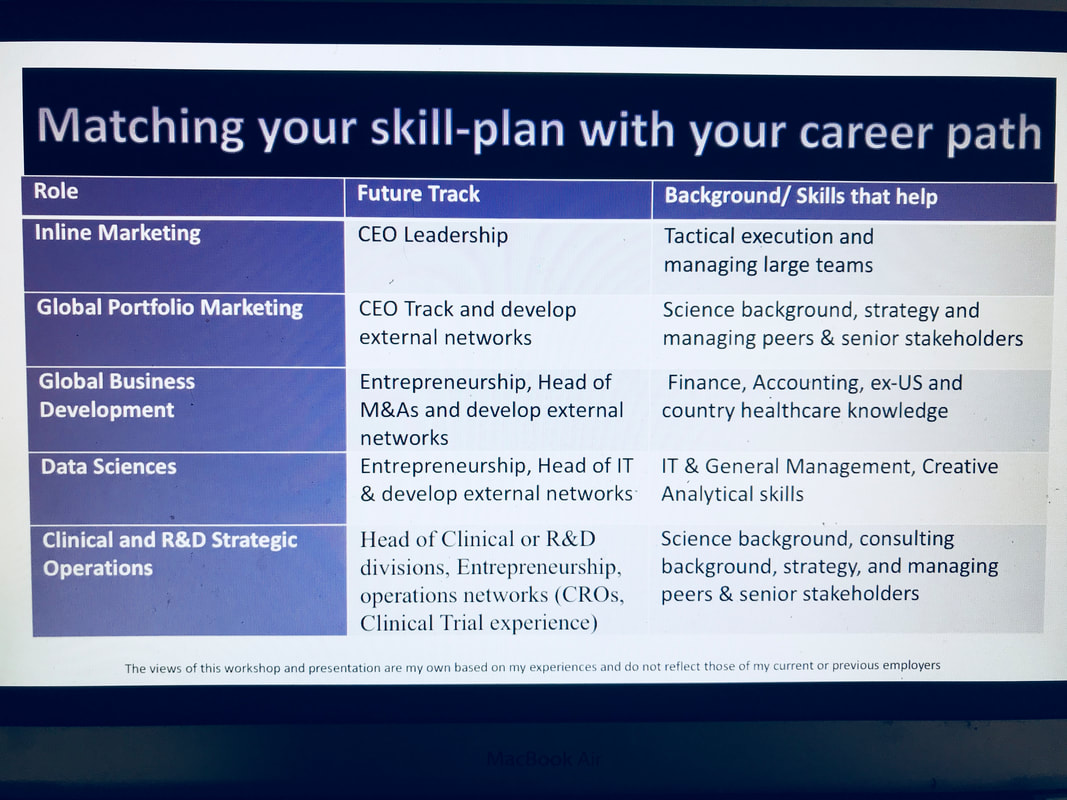
 RSS Feed
RSS Feed